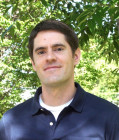Why – And How – Modern American Politicians Talk about God and Religion
Politicians in the United States have always talked about religion. In the nation’s very first inaugural address, President George Washington offered “fervent supplications to that Almighty Being who rules over the universe.” Remarkably, however, religious talk in American politics actually escalated in the late 20th century, even as the public’s engagement with traditional religion was waning. As new religiously motivated voting blocs emerged, politicians adjusted their rhetoric and actions accordingly. Religious political talk became assertive – and remains prominent to the present day.
Religion as a Political Signal
As they craft public messages, politicians in a democracy have to be attuned to the citizenry. If an especially attractive voting bloc might be within reach, savvy politicians will appeal to it with actions – or more simply, with words. Invoking religion is a straightforward way for politicians to signal alignment with, or direct support for, groups of religious believers. As a growing body of research reveals, even subtle religious cues transmitted during a political campaign can affect voter attitudes about candidates. Clearly, interest groups, political leaders, and certain segments of the public listen carefully to how politicians talk about religion – or fail to do so. This fact was brought home in 2010 to Barack Obama, when the Prayer Caucus in Congress wrote him an open letter criticizing him for not mentioning God often enough in his speeches.
The signaling aspect of religious talk does not mean that politicians are disingenuous when they talk about religious faith, including their own. Nevertheless, current U.S. political realities create incentives for politicians to think carefully about how and when they might talk about their faith – and how doing so could be politically advantageous.
Reagan Boosted the Salience of Religion in U.S. Politics
In response to a rapidly changing political environment, Ronald Reagan dramatically altered normal expectations about religious signaling by modern-era presidents. In the late 1970s, U.S. Christian conservatives began to mobilize politically on the right. They formed a host of new organizations, most notably Jerry Falwell’s Moral Majority, and began to court politicians who shared their values and spoke their language. Reagan did exactly that, in ways that his immediate predecessors had not done. Although Jimmy Carter is remembered for his willingness to discuss his evangelical faith in the 1976 campaign, he still ended up losing the support of this new voting bloc in 1980, after his first-term presidential rhetoric was among the least religious in history. The GOP candidate that year, Ronald Reagan, took the opposite tack.
Content analyses of presidents’ public communications show shifts in the amount and kind of religious content. Analyses of 360 major speeches delivered between Franklin Roosevelt’s inauguration in 1933 and the conclusion of the George W. Bush presidency in early 2009 reveal that the Reagan presidency was a watershed. Consider, for instance, the current standard political signoff, “God bless America.” Only once in a major address did a president use that signoff prior to Ronald Reagan taking office, as happened when Richard Nixon deployed the phrase in a speech about the Watergate scandal. Yet by the time Reagan left office, this had become a standard conclusion in his speeches, and it has been used ever since by presidents of both parties.
More broadly, similar trends are evident:
- When Reagan, George H. W. Bush, Bill Clinton, and George W. Bush are compared to their predecessors from 1933 to 1980, we see a more than 100% increase in presidential invocations of God, a more than 150% increase in religion-themed presidential proclamations, and a more than 200% increase in presidential speeches delivered at religious sites or to religious audiences.
- Recent presidents have noticeably increased their emphasis on terms such as “angel,” “heaven,” “pray,” and “sin.” What is more, they speak more regularly about Christ in annual Christmas communications.
- Political party platforms also shifted since 1980 to include more references to religious faith and give much greater attention to religiously relevant issues such as school prayer, abortion, and same-sex marriage.
Political religiosity has changed not only in amount but also in tenor. Prior to Reagan, U.S. presidents commonly spoke in what can be characterized as a “petitioner” posture – displaying stances of humility in which they sought God’s guidance or requested God’s support. But since Reagan, prophetic postures have been more common – where presidents claim to understand and channel God’s desires. In his inaugural address, for example, Reagan proclaimed “We are a nation under God, and I believe God intended for us to be free.” More than two-thirds of the time, recent presidents have used this sort of prophetic approach to tie God to the core American value of freedom. By contrast, when pre-Reagan presidents linked God to freedom, they did so from a petitioner posture 86% of the time.
The Rewards and Risks of Political Religious Talk
Although the U.S. Constitution forbids religious tests, today’s U.S. politicians are routinely asked about religion and expected to make their own faith visible. Many Americans want to hear such discussions, and even more expect it. Politicians can thus meet expectations and potentially improve people’s perceptions of them by peppering their speeches with crafted religious signals.
But there can also be drawbacks. Most citizens want religious expressions to feel authentic, and resist overtures that seem overly calculated or nakedly partisan. George H. W. Bush learned this the hard way in 1992 when he and his allies attacked Democrats for allegedly neglecting God. This drew a rebuke not only from the National Council of Churches, but also from some prominent conservative commentators, including George Will. Religious talk in politics, it seems, can go too far, even in an era when it is very common.
www.scholarsstrategynetwork.org August 2016
